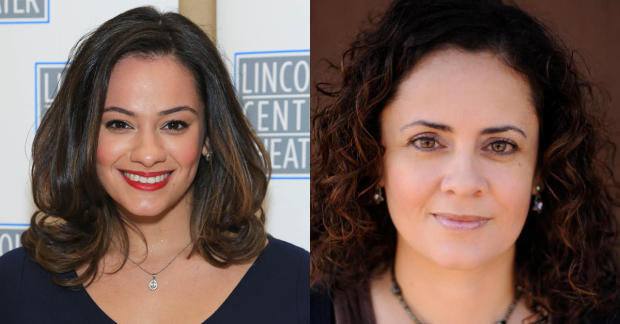Period Piece Is Here to Put an End to Period Stigma
Thirty-six actors and playwrights are teaming up for a great cause.
It's no secret that menstruation is a global phenomenon stigmatized by modern society. We've all seen how that stigma is spread, from tampon commercials to the way people who menstruate hide their menstruation when it's their "time of the month." Period Piece shifts the conversation away from shame by breaking the silence about the messy realities of the menstrual experience. The monologues from the three distinct performances focus on topics like first periods and how transgender and nonbinary people face more discrimination and, in many instances, even less access to sanitary supplies. But it also reminds us that period poverty, or the lack of access to menstrual products, is a persistent problem not limited to underdeveloped regions.
Actor Isabelle McCalla and playwright Zoila Galeano are two of the humans challenging the period status quo in Period Piece. Ahead of its premiere on April 12, TheaterMania spoke with them about digital theater, working with I Support the Girls, and menstruating with dignity.

(© Tricia Baron/Grapevine PR)
This conversation has been condensed and edited for clarity.
Zoila, there are many positive ways to describe a period, but luxury doesn't come to mind. What does this monologue try to achieve?
Zoila Galeano: Our monologue is about a woman's decision not to teach her child about periods the same way she was taught so she wouldn't have to go through the same things she did. I drew from my personal experiences of receiving conflicting information, and now you can talk about it instead of it being so gross. You can now articulate why it could be awful, but we still have a long way to go to destigmatize periods.
How did you first come across period poverty as an issue?
Isabelle McCalla: The victors write history, so we don't often look at communities that don't have as much access to the needed supplies. My introduction to period inequity was an informational video about how some people in Africa don't have access to pads and tampons. The problem with that is that it perpetuates the stigma of African disparities instead of having people look within their communities and approach community leaders.
I think part of the problem is that because there's so much stigma around menstruation, people don't want to discuss its inequity, and it's commonly thought of as a "female problem" [tampons are taxed, for example] when it's a misogynist policy. It's something I'm still learning about and I hope there's more transparency around it in the future.
Zoila: It was something I learned about as I grew older. Those subjects came about in just talking with different people [from her professional circles].
How do you keep the conversation about menstrual equity from becoming politically polarized?
Isabelle: Period Piece is a collaboration of 36 different playwrights with 36 stories, and all of the performers aren't necessarily women. Some men get their periods, and then some women don't get their periods, and people who don't identify as either. Having a variety of experiences will help destigmatize it, and often, we're told, especially as young people who get their periods, that it's a dirty thing or it's a bad thing. I remember feeling ashamed to have a tampon, and I would hide it up my sleeve. Menstrual equity is the first step towards destigmatization and then continue to highlight these various experiences and also understand that it is not only cisgender women who get periods. I'm really proud to be a part of a piece that highlights that at a time where we're also exploring theater's digital potential.
Zoila: It's something that happens to everyone, no matter what your belief systems are. If you take it from that angle, it shouldn't get politicized. I don't understand why one side would be willing to talk about it and the other side when it's just something that happens to everyone who experiences instruction, which affects people in their lives. I can't fathom why they would enter into the conversation.
What's something that you've learned about each other from working in Period Piece?
Isabelle: Zoila's writing is very specific, fun, and uncomfortable at times. That rings true to our human experiences, which I think is so funny because, for those of us who get periods, we all have the memory of our first time; it is embedded in our noggins deeply. There may be trauma associated with it, there may not, but the seed is always there. Seeing how that plays out in the monologue is wildly hysterical!
Zoila: Isabelle has this incredible energy, and she reminds me of people I am close with that think the same way that I do as far as how you would teach things in a different way your parents taught you. I wanted someone that can bring really good energy to it, and I thought she was perfect for it! I am a fan of her work and follow her on social media so I'm glad to work with her.
Part of Period Play's proceeds will go to I Support the Girls, an international organization supporting all genders, providing period products and bras to people experiencing homelessness and those in need, and working to end the stigma surrounding periods. What would you want to say to young people who are embarrassed or ashamed of their periods?
Isabelle: I understand the shame, pain, and isolation, but you're not alone. Maybe reach out to somebody else who goes through it, somebody else who's your age, or somebody else you trust, somebody who is older than you and you feel comfortable asking questions to. We're doing this play to highlight that over half of the world's population menstruates. You aren't alone, and in six to seven days, it will pass.
Zoila: It's a natural thing that happens and your menstrual cycle shouldn't define you.










